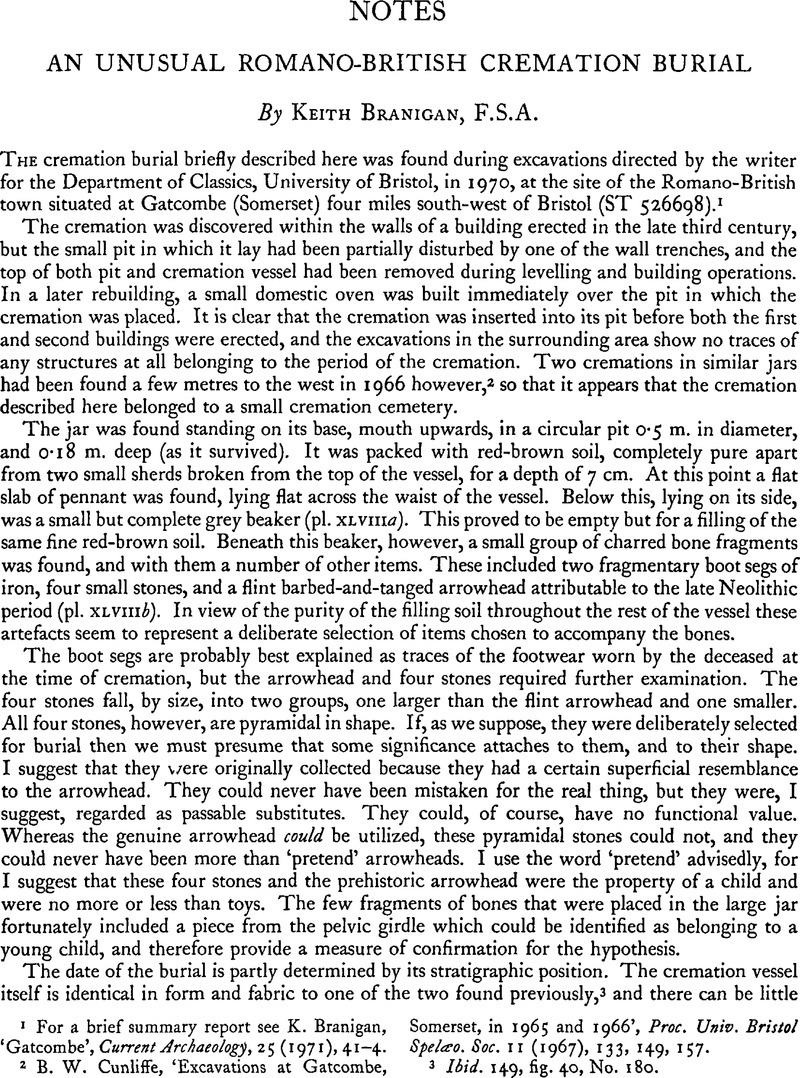No CrossRef data available.
Published online by Cambridge University Press: 29 November 2011

page 185 note 1 For a brief summary report see Branigan, K., ‘Gatcombe’, Current Archaelogy, 25 (1971), 41–4Google Scholar.
page 185 note 2 Cunliffe, B. W., ‘Excavations at Gatcombe, Somerset, in 1965 and 1966’, Proc. Univ. Bristol Spelœo. Soc. II (1967), 133Google Scholar, 149, 157.
page 185 note 3 Ibid. 149, fig. 40, No. 180.
page 186 note 1 B. W. Cunliffe, op. cit. 137–9, Nos. 1–46.
page 186 note 2 The construction of building 16 is securely dated by half a dozen coins. No details have been published apart from the duplicated interim report published by the Dept. of Classics, University of Bristol, for excavations in 1970.
page 186 note 3 Gillam, J. P., ‘Types of Roman Coarse Pottery Vessels in Northern Britain’, Arch. Aeliana, 35 (1957).Google Scholar
To send this article to your Kindle, first ensure no-reply@cambridge.org is added to your Approved Personal Document E-mail List under your Personal Document Settings on the Manage Your Content and Devices page of your Amazon account. Then enter the ‘name’ part of your Kindle email address below. Find out more about sending to your Kindle. Find out more about saving to your Kindle.
Note you can select to save to either the @free.kindle.com or @kindle.com variations. ‘@free.kindle.com’ emails are free but can only be saved to your device when it is connected to wi-fi. ‘@kindle.com’ emails can be delivered even when you are not connected to wi-fi, but note that service fees apply.
Find out more about the Kindle Personal Document Service.
To save this article to your Dropbox account, please select one or more formats and confirm that you agree to abide by our usage policies. If this is the first time you used this feature, you will be asked to authorise Cambridge Core to connect with your Dropbox account. Find out more about saving content to Dropbox.
To save this article to your Google Drive account, please select one or more formats and confirm that you agree to abide by our usage policies. If this is the first time you used this feature, you will be asked to authorise Cambridge Core to connect with your Google Drive account. Find out more about saving content to Google Drive.